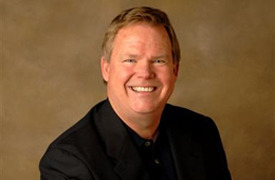Coach Yourself to Bigger Progress
 When I facilitate my “Leader as Coach” workshop for companies, I ask each manager to write down the name of the person on their team that would benefit the most from their coaching. How often do you think a manager writes down his or her own name? Not often! Fortunately, in the discussion after the exercise, they begin to see why their most important "coachee" should be themselves.
When I facilitate my “Leader as Coach” workshop for companies, I ask each manager to write down the name of the person on their team that would benefit the most from their coaching. How often do you think a manager writes down his or her own name? Not often! Fortunately, in the discussion after the exercise, they begin to see why their most important "coachee" should be themselves.
You might be wondering what this has to do with you if you aren't a leader in your organization. It has everything to do with you, because you are a leader whether you have a title or not. You lead yourself and impact and influence those around you. If you want to be a better leader for yourself, learn how great coaches enable others to go beyond what they think they're capable of and then apply what you learn to yourself.
One of the greatest tools coaches use are questions. Here are three questions you can use to coach yourself every day:
What are my top three goals/priorities?
Now is the time to plan how you will finish this year on a strong note and set yourself up for success in 2015. What 1-3 things do you need to focus on to do break through the tape at the finish line? Great coaches ask provocative questions, so don't just ask yourself what your goals are. Ask yourself if the ones you've chosen are worth giving your life to. Do they inspire you, challenge you and bring out the best you have to offer yourself and others?
Am I celebrating my progress?
One of the things my clients and workshop participants tell me is, “It would be helpful if I had more positive feedback on regular basis.” Of course they’re right, and I say “That’s a good observation, so make sure you get it—from yourself.” If you want to unleash your inner greatness, you have to respect and appreciate your progress along the way. If you want to get more from yourself, you have to give more to yourself.
How can I challenge and stretch myself?
A great coach isn’t afraid of challenging his or her client. Coaching yourself means you call yourself out when you need calling out—but that doesn’t mean criticizing yourself. It means telling yourself the truth you might not want to hear. Here’s an example: “Sherry, you say this is important to you, but you’re just going through the motions. What’s going on? I know you’re capable of more, so let’s figure this out together.” Coaching yourself requires not only empathy and encouragement; it also requires challenging yourself on a regular basis.
--Alan Allard, Executive Coach
Helene Lerner's Blog
- Helene Lerner's profile
- 9 followers



